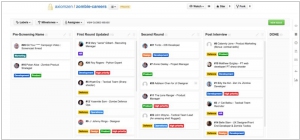Gitlab vs ZenHub
June 02, 2023 | Author: Michael Stromann
14
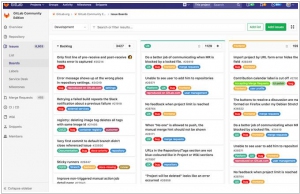
GitLab offers git repository management, code reviews, issue tracking, activity feeds and wiki’s. Enterprises install GitLab on-premise and connect it with LDAP and Active Directory servers for secure authentication and authorization. A single GitLab server can handle more than 25,000 users but it is also possible to create a high availability setup with a multiple active servers.
GitLab and ZenHub are both project management tools that cater to different aspects of the software development lifecycle. GitLab is primarily a web-based Git repository management and collaboration platform. It provides version control, issue tracking, continuous integration, and deployment capabilities in an integrated environment. GitLab offers a comprehensive set of features for managing code repositories, facilitating collaboration among development teams, and automating software delivery. On the other hand, ZenHub is a project management extension specifically designed for teams using GitHub. It integrates with GitHub's issue tracking system and provides additional project management features like task boards, burndown charts, and reporting. ZenHub focuses on visualizing and tracking work within GitHub, enhancing project planning and team collaboration.
See also: Top 10 Issue Trackers
See also: Top 10 Issue Trackers
Gitlab vs ZenHub in our news:
2021. Project management service ZenHub raises $4.7M
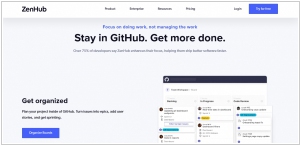
ZenHub, the project management service focused on GitHub integration for development teams, has successfully raised a seed funding round of $4.7 million. In addition to this achievement, the company has recently introduced its latest automation feature. This new feature aims to streamline the planning of development sprints, a critical aspect of the Agile development process that often consumes significant time and effort. By automating this process, teams can allocate their resources more efficiently towards actual development work. Furthermore, ZenHub has plans to develop an additional feature that automates certain aspects of the software estimation process. This upcoming tool will assist teams in assigning story points to routine action items, enabling more focused discussions on contentious issues.
2015. Collaboration platform for developers GitLab raises $4M
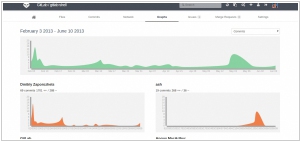
GitLab, the open source Git-based collaboration platform for developers, has announced that it successfully secured $4 million in Series A funding. The company provides a free community edition, a free SaaS version, and a paid enterprise edition of its service. With the newly acquired funding, GitLab aims to expedite its growth and expand its global operations. Git has become the go-to method for code management among numerous development teams. While GitHub stands as the most well-known Git-hosting service, there exist several competitors in this realm, each offering their own unique approach and user interface on top of the fundamental hosted Git concept. Atlassian, for instance, provides both free and paid Git hosting services. What sets GitLab apart from some of these competitors is its strong emphasis on its open source solution.
2015. ZenHub connects its project management service to GitHub Enterprise
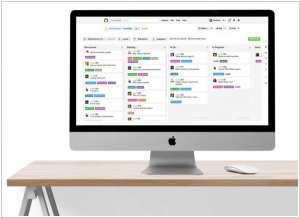
ZenHub, a platform designed to assist engineering teams in managing their GitHub projects using intuitive drag-and-drop task boards similar to Trello, was initially exclusively available for regular GitHub accounts. However, a recent development has expanded its accessibility. From now on, enterprise users who utilize the on-premise GitHub Enterprise service can also leverage the capabilities of ZenHub. This enterprise version of ZenHub distinguishes itself as one of the pioneering collaboration and project management services that seamlessly integrates with GitHub Enterprise. GitHub, along with Git as a whole, has been rapidly embraced within enterprise environments. Consequently, several project management services have emerged in the market, including startups like waffle.io (which also supports GitHub Enterprise) and various tools offered by Microsoft and Atlassian. What sets ZenHub apart is its direct integration with GitHub Enterprise, eliminating the need for developers to constantly switch between multiple disparate tools.

